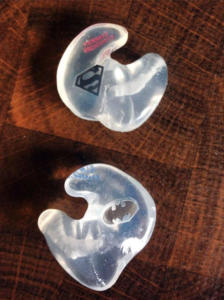Even one simple tweet can add such a level of flavor and dimension in your life. That’s something that we learned from our latest Spotlight Story Program feature writer, British graphic designer, Asia-Jorden Alexander-Smith when we saw her viral tweet about ASOS using a model with a hearing aid on their store. Since then, Asia continues to use her voice sharing her journey living with Usher Syndrome and raising awareness for the hearing loss and visual impairment communities, while also just living her life as an awesome young adult. In her feature, Asia shares her health journey and how she conquers her world by finding what makes her confident leading with honesty. Plus, learn how surrounding yourself with a dynamic support network makes you a legend and Asia’s five pieces of life advice as a self-confessed non-expert. We are here for it!
Hi! There’s a very good chance you have no idea who I am, so let me introduce myself – My name’s Asia. I’m a 23 year old graphic designer from the lovely county of South Yorkshire, England. I have two older brothers, 11 tattoos, and a cat called Harvey. Oh, and a condition called Usher Syndrome.
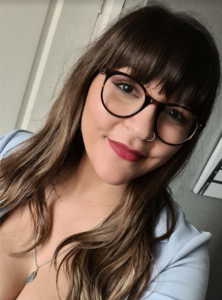 Back in 1998, newborn hearing checks didn’t happen so it wasn’t until my 7-month check that doctors noticed something was awry with my hearing. I failed my follow-up auditory brainstem response test, leading to the diagnosis of a severe bilateral sensorineural hearing loss. I was given two hearing aids at 11 months old and pretty much sent on my merry way to get on with my life as the only deaf person in my family.
Back in 1998, newborn hearing checks didn’t happen so it wasn’t until my 7-month check that doctors noticed something was awry with my hearing. I failed my follow-up auditory brainstem response test, leading to the diagnosis of a severe bilateral sensorineural hearing loss. I was given two hearing aids at 11 months old and pretty much sent on my merry way to get on with my life as the only deaf person in my family.
Until I was 19, things were relatively straight-forward with my health – routine hospital appointments, hearing tests, new ear-molds, rinse and repeat. It was by no means easy, but it was a level of stability that I’d adapted to and accepted as a part of my life, a huge factor of the very foundation of who “Asia” was.
One weekend, I thought I’d got some dust in my eyes as I started to notice a bit of shadowing – almost like a cobweb – in the centre of my vision in my right eye. After leaving it for a few days, I was sent to A&E by my doctor to get it checked out. I was eventually dismissed by an A&E doctor and told that I had posterior vitreous detachment (PVD), which apparently was nothing to worry about and I should only be concerned if the floaters seemed to suddenly get worse.
I can’t lie, the testing process was grim. I’m a person who had never had eye drops before in my life and suddenly I was having ten sets of various eye drops within the space of a week and a half. I’m claustrophobic, and I had to stick my head in a little box and stare at a bunch of flashing lights whilst having electrodes literally touching my eyeballs so the doctor could measure my brain activity (an electroretinogram and visual field test). I felt like some kind of lab rat being poked and prodded and honestly, it sucked.
After countless trips back and forth to various hospitals to see various ophthalmologists, I was diagnosed with Usher Syndrome Type 2, a genetic disorder characterised by deafness accompanied by Retinitis Pigmentosa. RP is a progressive eye condition which causes night-blindness, tunnel vision and, in advanced cases, loss of central and colour vision.
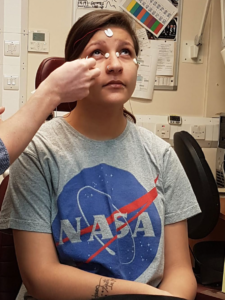 I remember being sat in the consultation room with my mum and my oldest brother and my heart just broke. I was told I’d never be able to drive because the minimum peripheral vision requirement was 120°. I had 10° of peripheral vision left, and I hadn’t even realised I was losing it.
I remember being sat in the consultation room with my mum and my oldest brother and my heart just broke. I was told I’d never be able to drive because the minimum peripheral vision requirement was 120°. I had 10° of peripheral vision left, and I hadn’t even realised I was losing it.
I was 19 years old and forced to grow up so much faster than everybody else around me. For my whole life, I’d chased a career in graphic design and now I was being handed a visual impairment certificate, which felt very much like my dream career was over before it started. I thought I’d learned how to deal with my deafness but this? This was completely unfamiliar territory for me.
It left me questioning everything I thought I had figured out, my deafness included. I was starting to notice that I was now an adult, sitting in hearing clinics where I was the youngest person by decades, being seen by audiologists who didn’t seem to know how to deal with me with the same compassion I’d experienced in the children’s clinics.
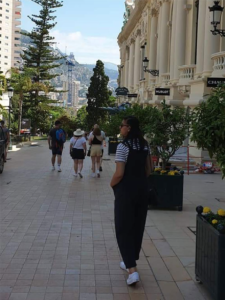 However, as difficult and life-changing as the diagnosis was, it also came with a strange sense of relief and clarity; I wasn’t just clumsy, I literally couldn’t see the things I was bumping into because they were outside my field of vision. I wasn’t just a bit of a wuss for being scared of the dark; part of RP is night-blindness and let me tell you, being unable to see or hear in the dark can be pretty scary.
However, as difficult and life-changing as the diagnosis was, it also came with a strange sense of relief and clarity; I wasn’t just clumsy, I literally couldn’t see the things I was bumping into because they were outside my field of vision. I wasn’t just a bit of a wuss for being scared of the dark; part of RP is night-blindness and let me tell you, being unable to see or hear in the dark can be pretty scary.
At some point after my diagnosis, I completely changed my mindset. I truly wish I could remember the exact moment but all I recall is a newfound appreciation for my life, the experiences I was having and the people around me.
My family and friends were so incredibly loving and supportive. I don’t think I’d be the person I am today if I didn’t have the amazing support network that I have around me. The support and help I have from those who love me mean that I still love going to gigs, and on days or nights out.
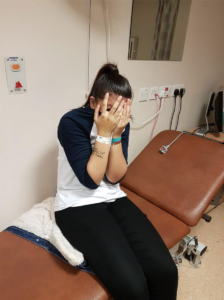 I go to the cinema. I go on holidays to places I’ve never been, because I know that not only is there someone there to support me along the way, but I’m confident enough in myself to ask for help if something isn’t accessible enough for me.
I go to the cinema. I go on holidays to places I’ve never been, because I know that not only is there someone there to support me along the way, but I’m confident enough in myself to ask for help if something isn’t accessible enough for me.
That support network only grew as I delved more into the world of social media. I’d never really been part of a deaf community growing up, so when I posted a little tweet about a deaf ASOS model that I’d noticed, I definitely didn’t expect the incredible reaction it received.
People were messaging me to thank me for bringing it to their attention and for increasing public awareness. People were coming to me with self-esteem and confidence issues around their own disabilities and asking for advice.
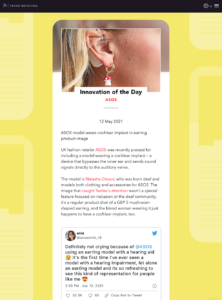
Now, I definitely wouldn’t call myself an expert by any stretch of the imagination but just knowing that I potentially helped even one or two people within their own lives as disabled individuals? It’s truly humbling.
There are so many amazing little communities on Facebook, Instagram, Twitter – whatever your social platform of choice is. You might have the most supportive family and friends in the world but sometimes you need people who know how it feels to be in your position.
While we’re all different, even with an identical diagnosis, there are countless people who just… understand.
I’m now an auntie to six nieces and nephews, the youngest of whom has the same hearing loss as me. I want him to grow up feeling supported and completely unstoppable, regardless of his hearing.
So, my advice as a self-confessed non-expert?
- Stand your ground. A doctor can tell you technical stuff from a medical perspective but ultimately? They’ve read about it. You’re living it.
- Surround yourself with supportive people. You are never alone. I can’t promise that you won’t encounter people who don’t understand, or are perhaps just downright ignorant, but for every one ignorant individual, there are countless others who want to support and empower you.
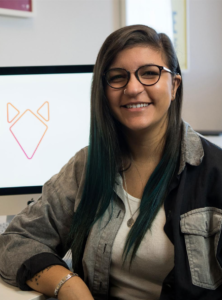 Be honest. Be honest with your doctors if you feel like something isn’t right, or if you don’t understand all the technical jargon that’s being hurled your way. Be honest with your friends or family if you’re just too drained to do that thing you were supposed to do. Be honest with yourself and those around you if you need a bit of help and support.
Be honest. Be honest with your doctors if you feel like something isn’t right, or if you don’t understand all the technical jargon that’s being hurled your way. Be honest with your friends or family if you’re just too drained to do that thing you were supposed to do. Be honest with yourself and those around you if you need a bit of help and support.- If you need something, ask. Don’t feel bad about asking for something to be made more accessible for you. You’re entitled to the same experience and level of service as anybody else!
- Be proud. There’s only one of you in the world and that makes you more special than you’ll ever know.
Who am I today?
My name is Asia, and I’m 23 years old. I’m still a Graphic Designer. I laugh at things that I probably shouldn’t. I cry, a lot (usually at films!). I’m a resilient, occasionally funny, incredibly sarcastic young woman. I have Usher Syndrome Type 2, and you best believe I’m proud.
